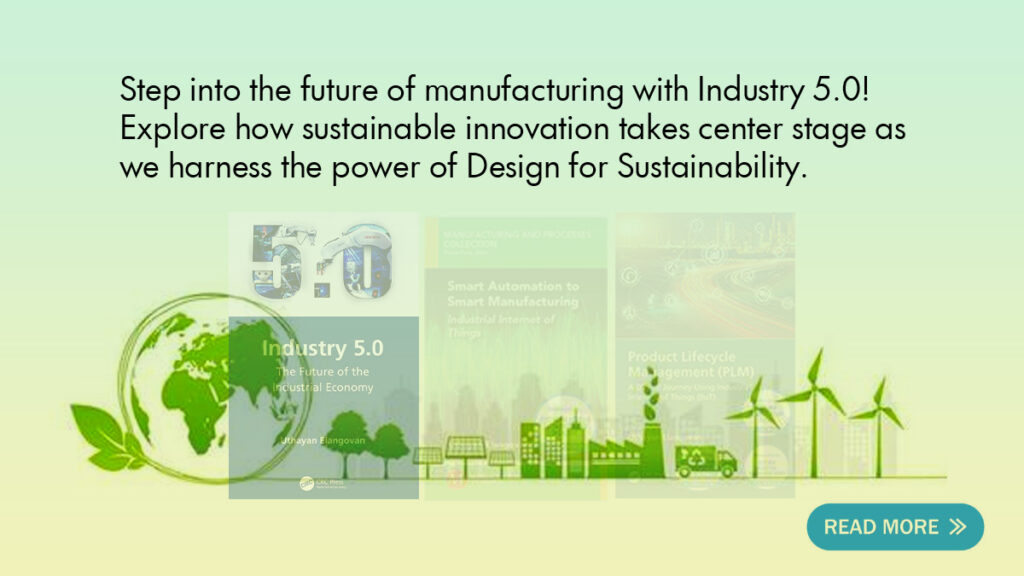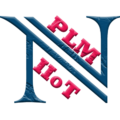Driving Sustainable Innovation with Industry 5.0 and Design for Sustainability.

Introduction:
Evolving business landscape in this competitive world , manufacturing enterprises face the challenge of meeting increasing consumer demands while ensuring sustainability and environmental responsibility. The emergence of Industry 5.0, characterized by the integration of advanced technologies with human expertise, presents a unique opportunity for manufacturers to not only streamline their processes but also incorporate sustainability principles into their product development. One key approach to achieve this is through Design for Sustainability (DfS) in the New Product Development (NPD) and New Product Introduction (NPI) process. In this article, we will explore the best practices of Industry 5.0 and how manufacturers can leverage DfS to drive sustainable innovation.
Industry 5.0 Impact
Industry 5.0 goes beyond the automation-centric focus of Industry 4.0. It emphasizes the synergy between humans and machines, leveraging the creative and problem-solving abilities of the workforce alongside advanced technologies like the Internet of Things (IoT), Artificial Intelligence (AI), and additive manufacturing. This human-centered approach aligns perfectly with the principles of sustainability.
Incorporating DfS principles within Industry 5.0 enables manufacturers to develop products that minimize their environmental footprint throughout the entire lifecycle, from raw material sourcing to end-of-life disposal. By adopting sustainable practices, manufacturers can enhance their brand image, attract eco-conscious consumers, and ensure compliance with stringent environmental regulations.
Best Practices:
Best Practices of Industry 5.0 utilizing Design for Sustainability.
- Cross-Functional Collaboration: Industry 5.0 encourages collaboration across different departments, bringing together diverse perspectives, including R&D, production, marketing, and sustainability teams. This cross-functional collaboration ensures that sustainability is considered at every stage of the NPD/NPI process.
- Life Cycle Assessment (LCA): LCAs are a valuable tool in the DfS toolkit. They allow manufacturers to quantify the environmental impacts of their products and make data-driven decisions. During the NPD/NPI process, conducting LCAs helps identify “hotspots” where environmental impact is most significant, enabling targeted efforts for improvement. Implementing LCA methodologies allows manufacturers to analyze the environmental impact of a product throughout its life cycle. This assessment helps identify areas where sustainable design changes can be made, leading to more eco-friendly products. Additionally, LCAs assist in setting meaningful sustainability goals and tracking progress over time.
- Material Selection and Circular Economy: In Industry 5.0, manufacturers should prioritize the use of renewable and recyclable materials. Integrating circular economy principles ensures that products and materials are designed to be reused, repaired, or recycled, reducing waste and conserving resources. This practice not only reduces waste but also opens up new revenue streams through remanufacturing and refurbishment services.
- Energy Efficiency and Smart Manufacturing: Embracing smart manufacturing practices, such as energy-efficient production processes and smart sensors, helps reduce energy consumption and optimize resource usage.
- Sustainable Packaging: In Industry 5.0, sustainable packaging design is essential. Manufacturers should strive to minimize packaging materials, use eco-friendly alternatives, and adopt packaging that promotes reusability and recyclability.
- Product as a Service (PaaS): Shifting towards a Product as a Service model allows manufacturers to retain ownership of products, encouraging longer product lifespans, efficient maintenance, and end-of-life recycling.
- Educate Employees: Implementing Industry 5.0 with DfS requires a cultural shift within the organization. Manufacturers must educate and empower their employees to understand and embrace sustainability principles. Training programs and workshops can equip staff with the knowledge and tools necessary to identify sustainable opportunities and drive positive change.
The Benefits:
The integration of Industry 5.0 principles with Design for Sustainability offers numerous benefits for manufacturing enterprises:
- Enhanced Competitiveness: Embracing sustainable practices sets manufacturers apart in a competitive market, attracting environmentally conscious consumers and business partners.
- Cost Savings: Optimizing resource usage, reducing waste, and prolonging product lifespans lead to significant cost savings in the long run.
- Regulatory Compliance: Manufacturers can stay ahead of evolving environmental regulations by integrating sustainability from the outset.
- Innovation Leadership: Industry 5.0 and DfS empower manufacturers to be innovation leaders, driving change within their sector and setting new industry standards.
Conclusion:
As manufacturers embark on their Industry 5.0 journey, it is crucial to embrace sustainability as a core principle in the NPD/NPI process. By adopting Design for Sustainability, manufacturing enterprises can minimize their environmental footprint, improve competitiveness, and position themselves as leaders in sustainable innovation. Unlock the secrets of Industry 5.0: The future of the Industrial Economy awaits in our insightful publications. Delve deeper for more details and discover how this transformative paradigm is shaping the manufacturing landscape!
Neel SMARTEC is ready to assist your company in navigating this exciting transformation and ensuring a prosperous and sustainable future. Embrace Industry 5.0 with Neel SMARTEC today!

